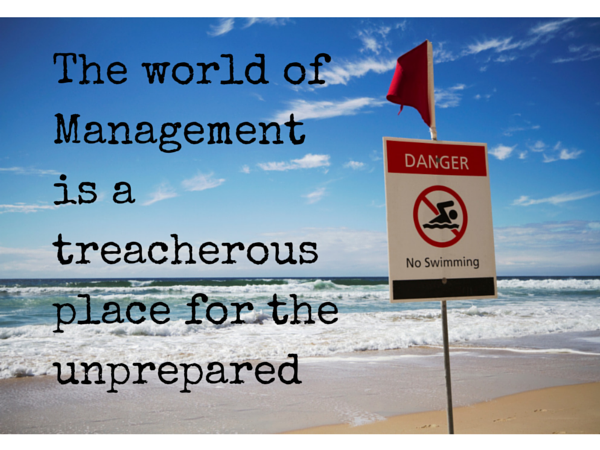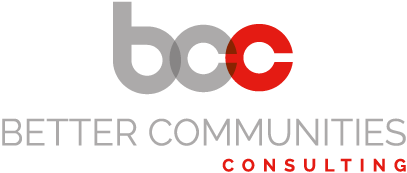
by Brad Clarke | Oct 10, 2014 | Human Resource Management, Management, Performance Improvement
Management training and skill development is a priority for newly appointed Managers The right stuff If I were to describe myself in three words, I would say “caring, intelligent, fair”, qualities I believe, that are important to be a successful Manager. As a proficient, possibly even outstanding technician in my chosen vocation, I was identified as a candidate for promotion and eventually my opportunity arrived. A car and accompanying car park privileges, a nice pay rise and a set of shiny keys established in me a mandate of the Manager – to get things done “the right way”. Management is more than commitment to the cause Over a period of six years, I did, with those three traits (care, intelligence and fairness) commit myself fully to the tasks and people I oversaw. I can, hand on heart, say that I had the best interests of my staff at the forefront of (most) decisions and actions I was responsible for. No doubt. I can just as easily declare my time in the role as a rollercoaster of uncertainty and unfortunately, one of limited success. I made some horrible mistakes; mistakes I still ponder (now that I know and understand the reasons they were so bad). For sure I had the deck stacked against me when I naively signed my new contract; a culture of underperformance in a highly competitive, possibly even inviable contract. Yet still I now understand clearly that I did myself, my staff and my organisation no favours and for that I suffered great personal anguish, cost several people their jobs and left a major hole in budgets over...

by Brad Clarke | Oct 9, 2014 | Communication, Leadership Training, Performance Improvement
Effective Communication is paramount to organisational success; Poor communication can be fatal! The Problem Dynamic For over a decade I arm-wrestled with Federal and State contracts in the field of Social Services. Unsurprisingly, considering the complexity of these contracts, I also wrestled with staff, on a daily basis, trying to get them to deliver the contract within the prescribed parameters. I felt I was communicating honestly, openly and clearly, yet I could never find real traction in establishing a platform of performance that was required. The Diagnosis In mid 2011, after throwing my hands into the air in resignation, I came across the concept of “The CEO’s Disease”. It was a pivotal moment in my journey towards rebuilding my career and highlighted the significant issues caused by poor communication, whilst giving a diagnosis, a range of symptoms and finally, a cure. As I learned of this putrid disease, I became intimately aware that this disease had run rampant through my previous place of employ. I realised that it was nobody’s fault, it was a disease of unawareness and ineffectiveness, despite extraordinary effort and commitment. The Symptoms Effective communication, or lack thereof, can play a very large role in an organisation’s overall performance. “Poor Communication” consistently rates as one of the major disabling factors across vertical and horizontal business structures as indicated by the Sustainable Organisational Culture Survey. Moreover, perception of poor communication channels running vertically through the organisation (ie. from the CEO to the shopfloor) has significant impacts on morale, motivation and effort of people at the lower levels of the organisation. Often, the CEO and senior members of...

by Brad Clarke | Sep 13, 2014 | Leadership Training
Professional Development I’ve always struggled with Professional Development. For the majority of experiences I’ve had, the take home message has formed the same monotonous tone, “well that was a waste of time!” Often the title of the training, the glossy brochure and the attendant agenda offer a ‘blanket box’ of wonderful skills and techniques to create organisational (or personal) utopia. As an emerging Leader in my chosen field, I increasingly became engaged in a series of (increasingly expensive) workshops and courses that only seemed to deaden my expectations and increase my cynicism; simply put, the benefits of the exercise fell far below that of the “Promised Land”. Even when the training was of value, it seems that a few days or week after the event, I had little or no recollection of the content and intended uses of such. That is not to say that I learnt nothing along the journey. Stephen Covey’s seventh habit, for example, as described in his famous self-help book and workshop, The Seven Habits of Highly Effective People, is titled “Sharpen the Saw” did make some impact. The metaphor explains an ideology of keeping our tools in optimum condition to promote effective performance. In a world that is constantly morphing and challenging our business structures and models, the ideology has never been more important. Furthermore, the benefits of keeping those saw teeth sharp must be sustainable and not simply a process of “goldfish polishing”. I took this habit and with great vigour, began the search for the right Saw Sharpener. Goldfish polishing, …. as defined by one of Australia’s most experienced and influential Organisational Culture experts, Robert Re (an exceptional Saw Sharpener and now my mentor), is the...






Recent Comments